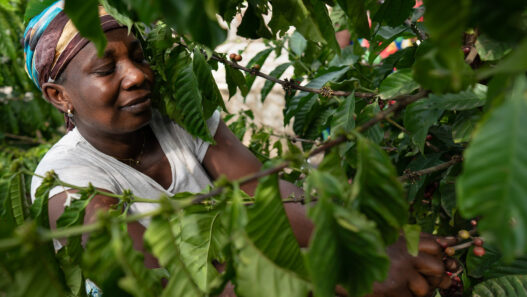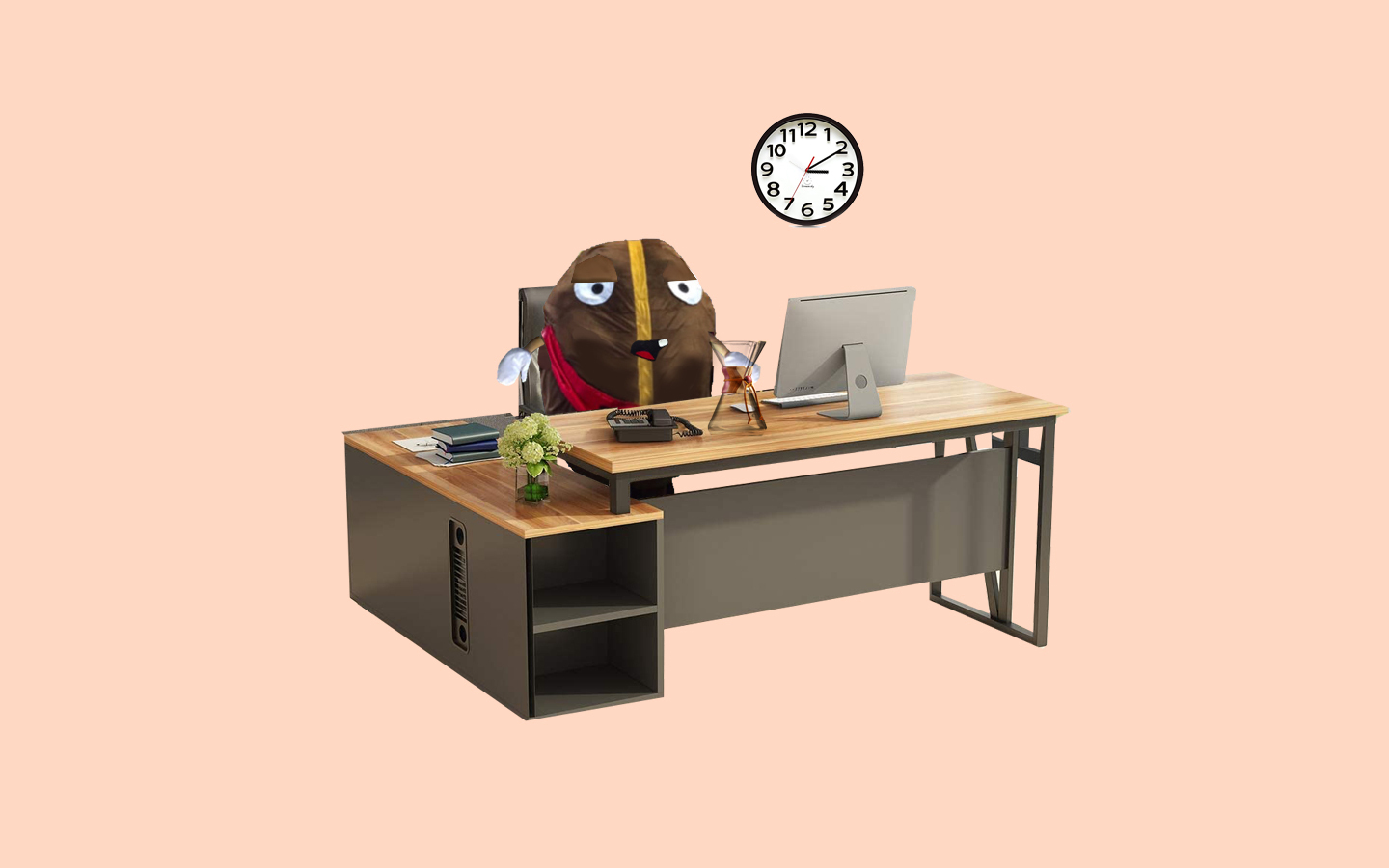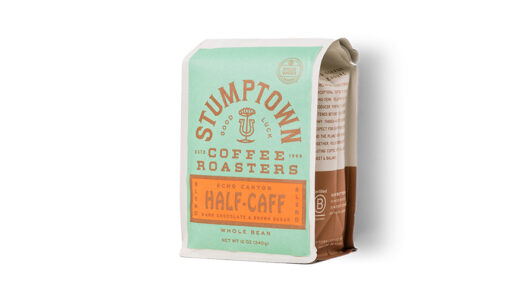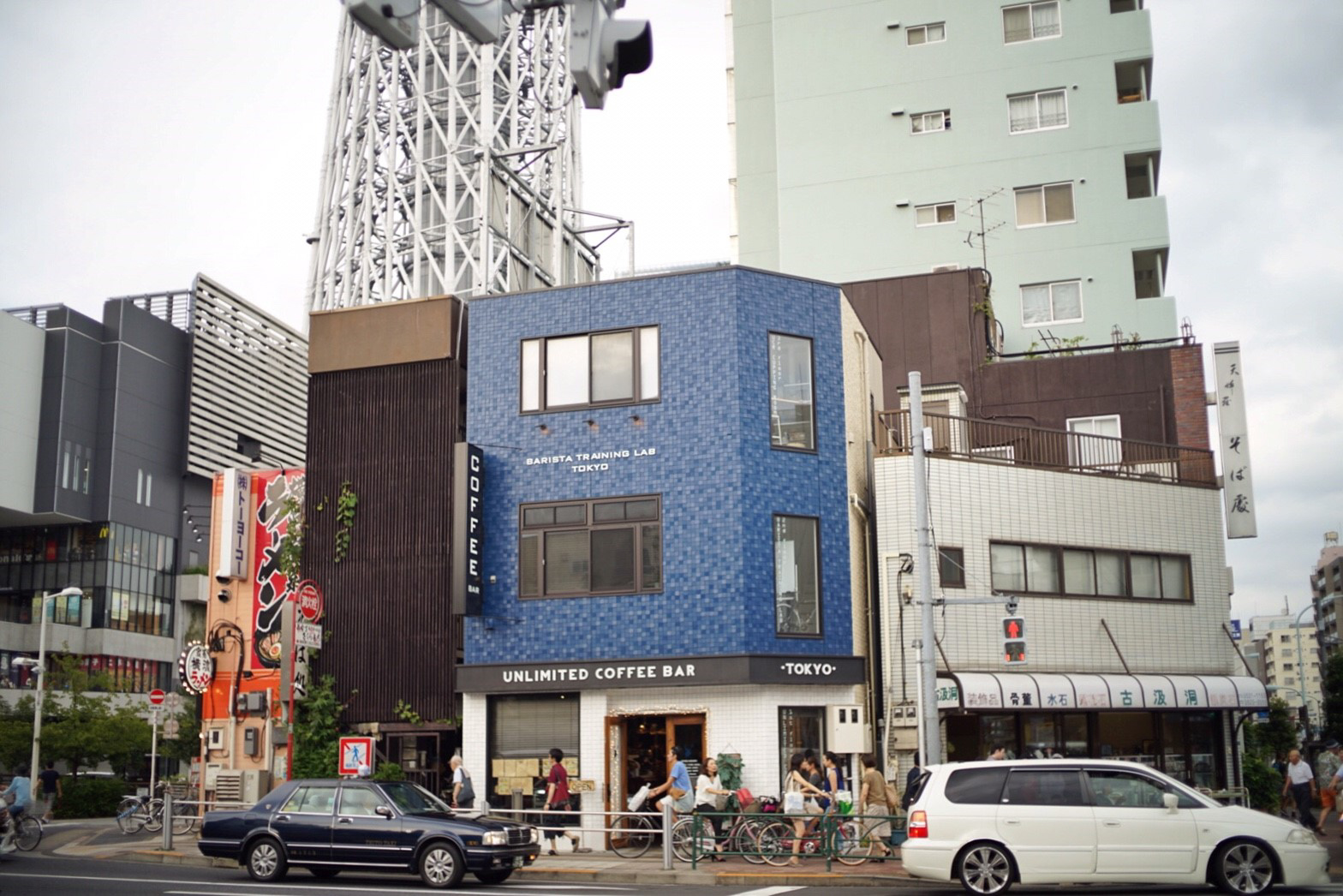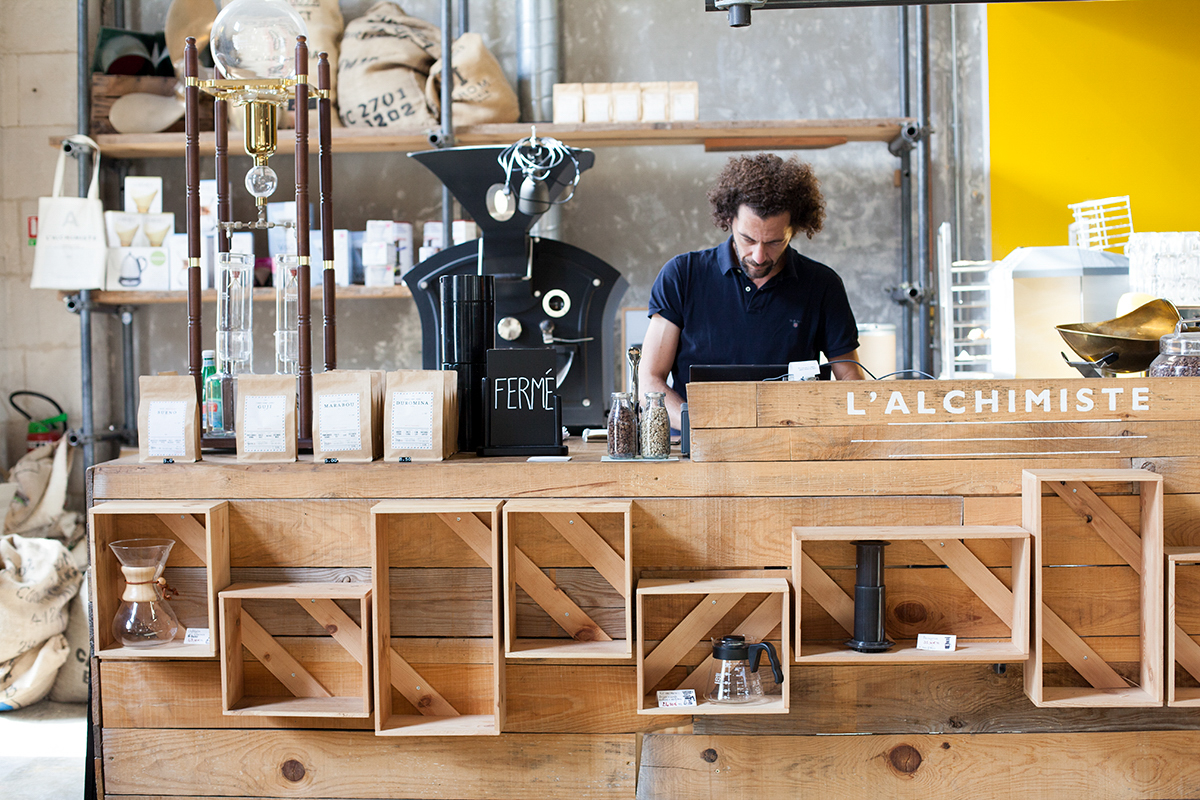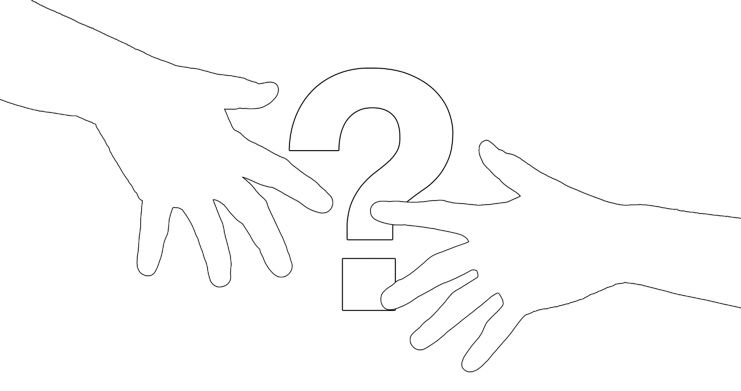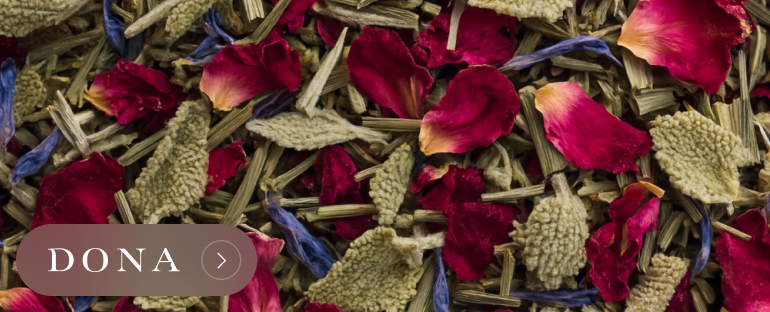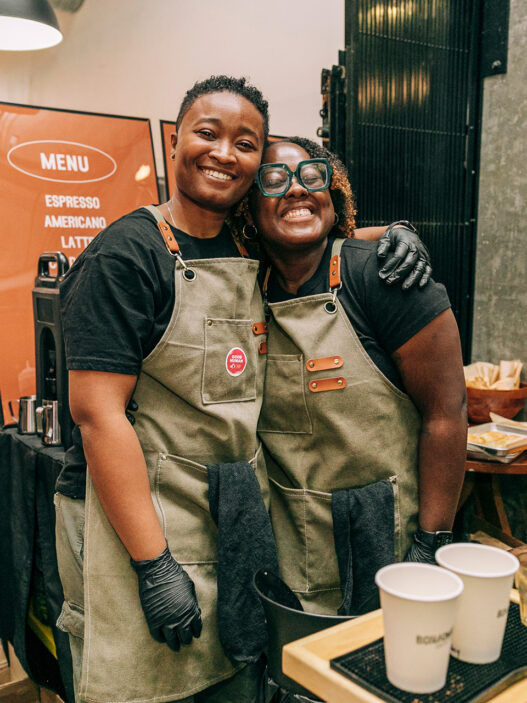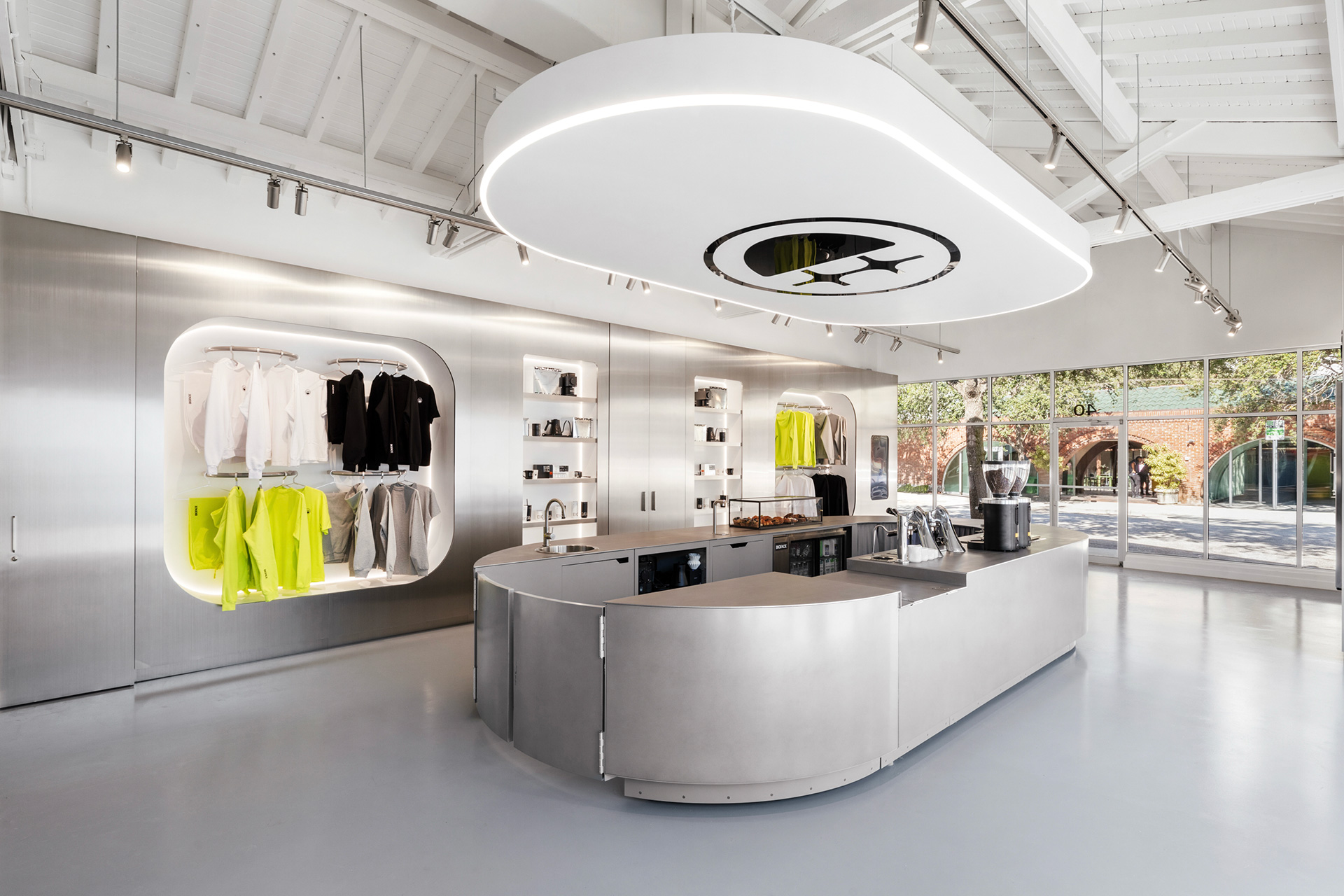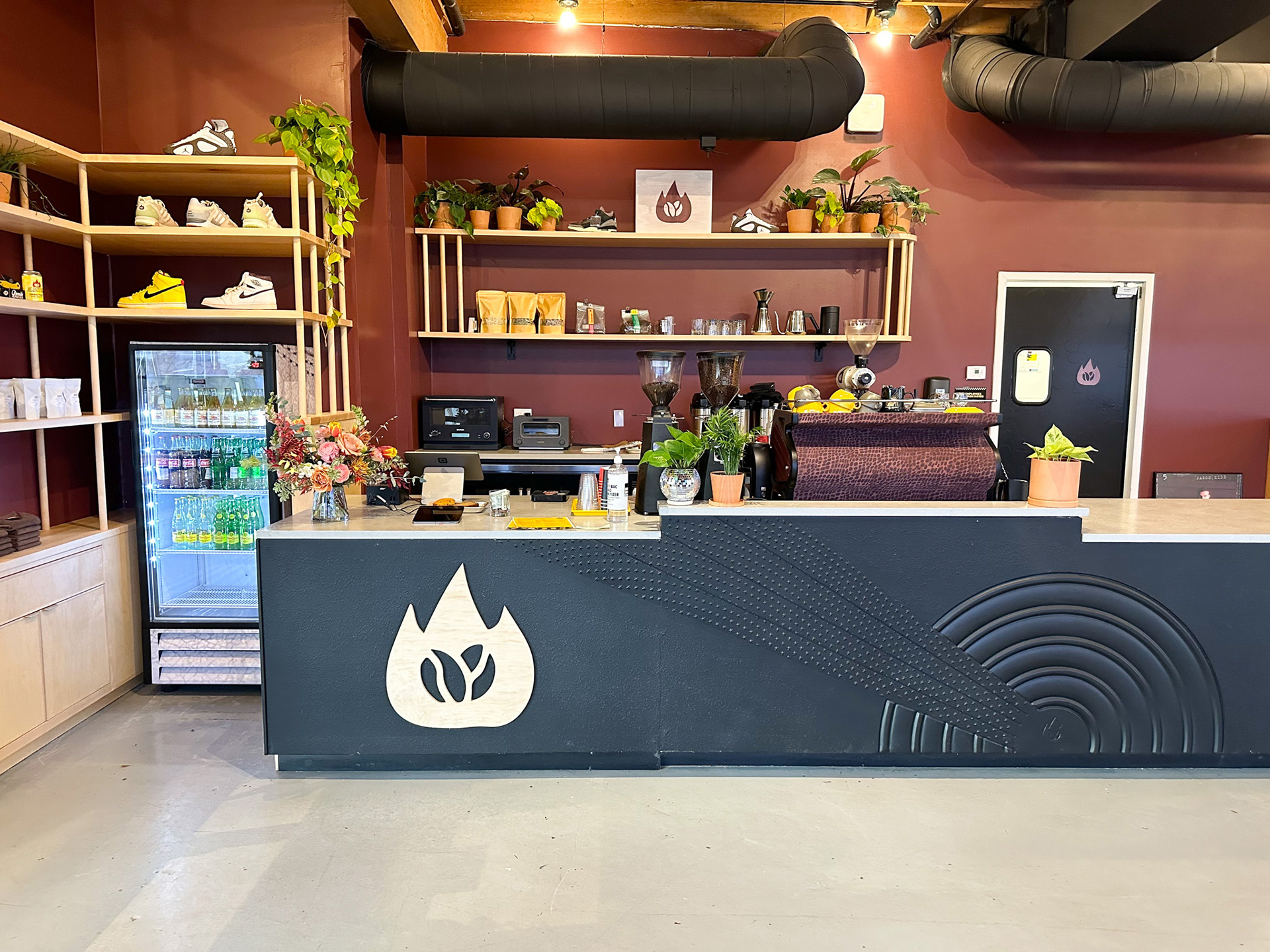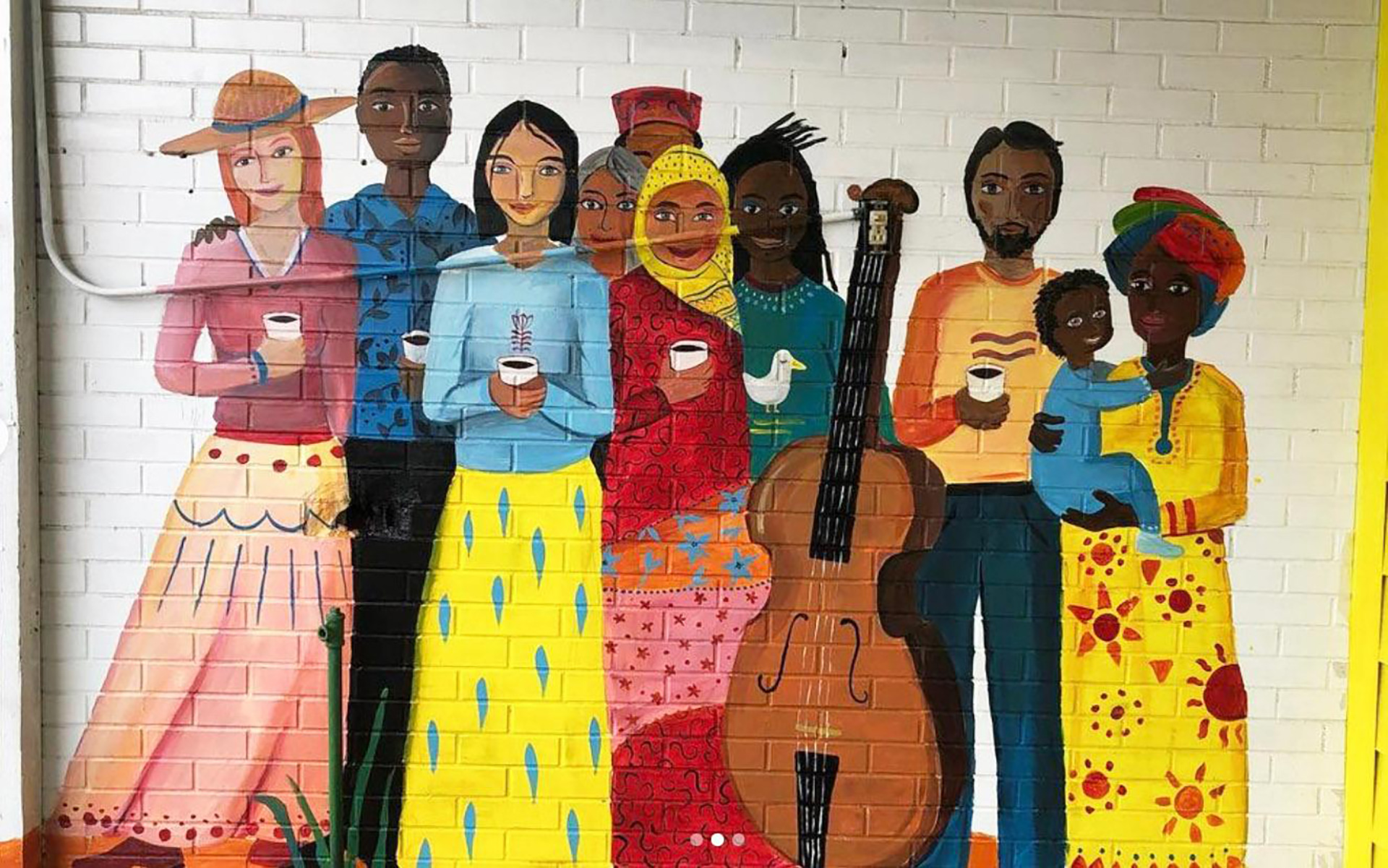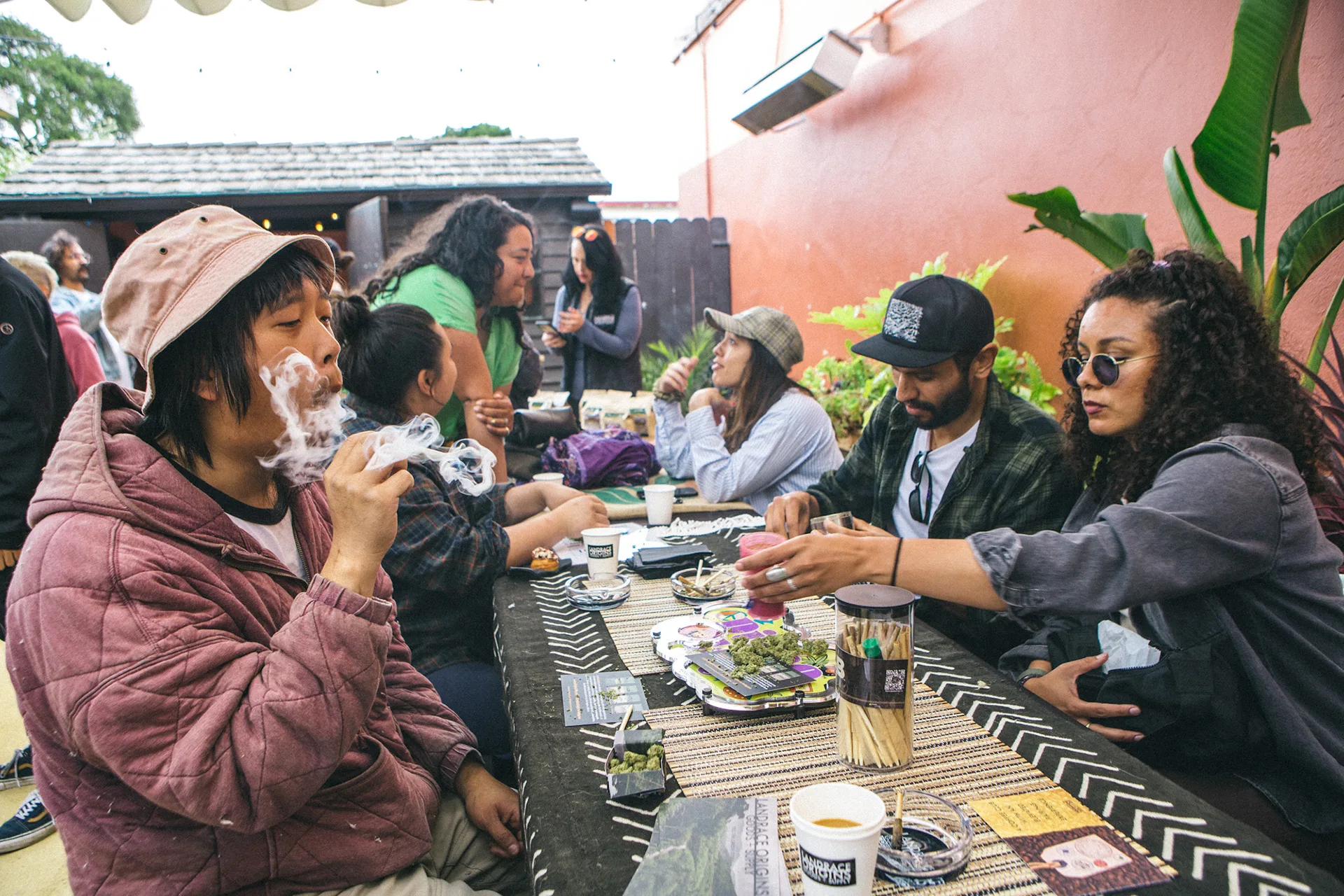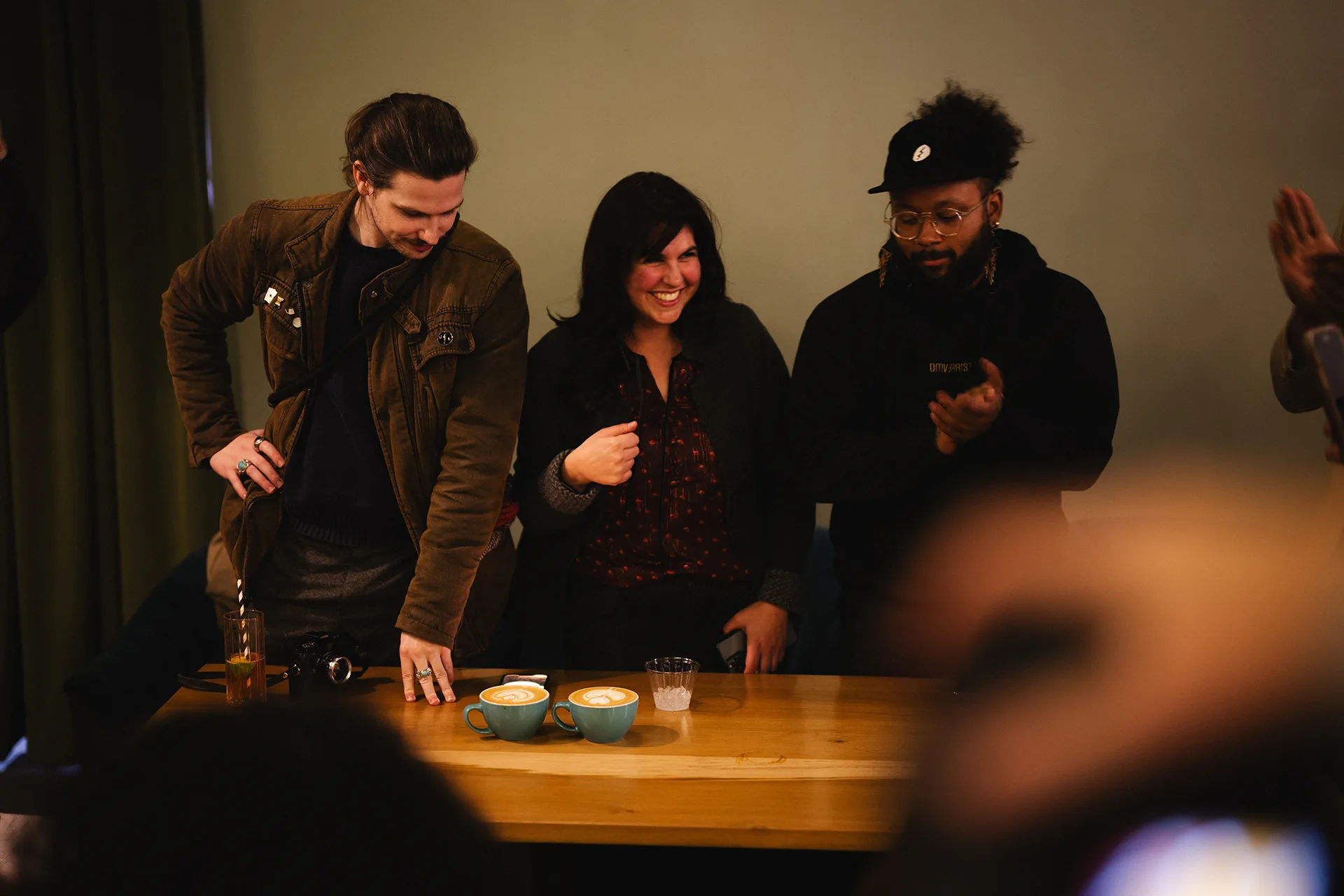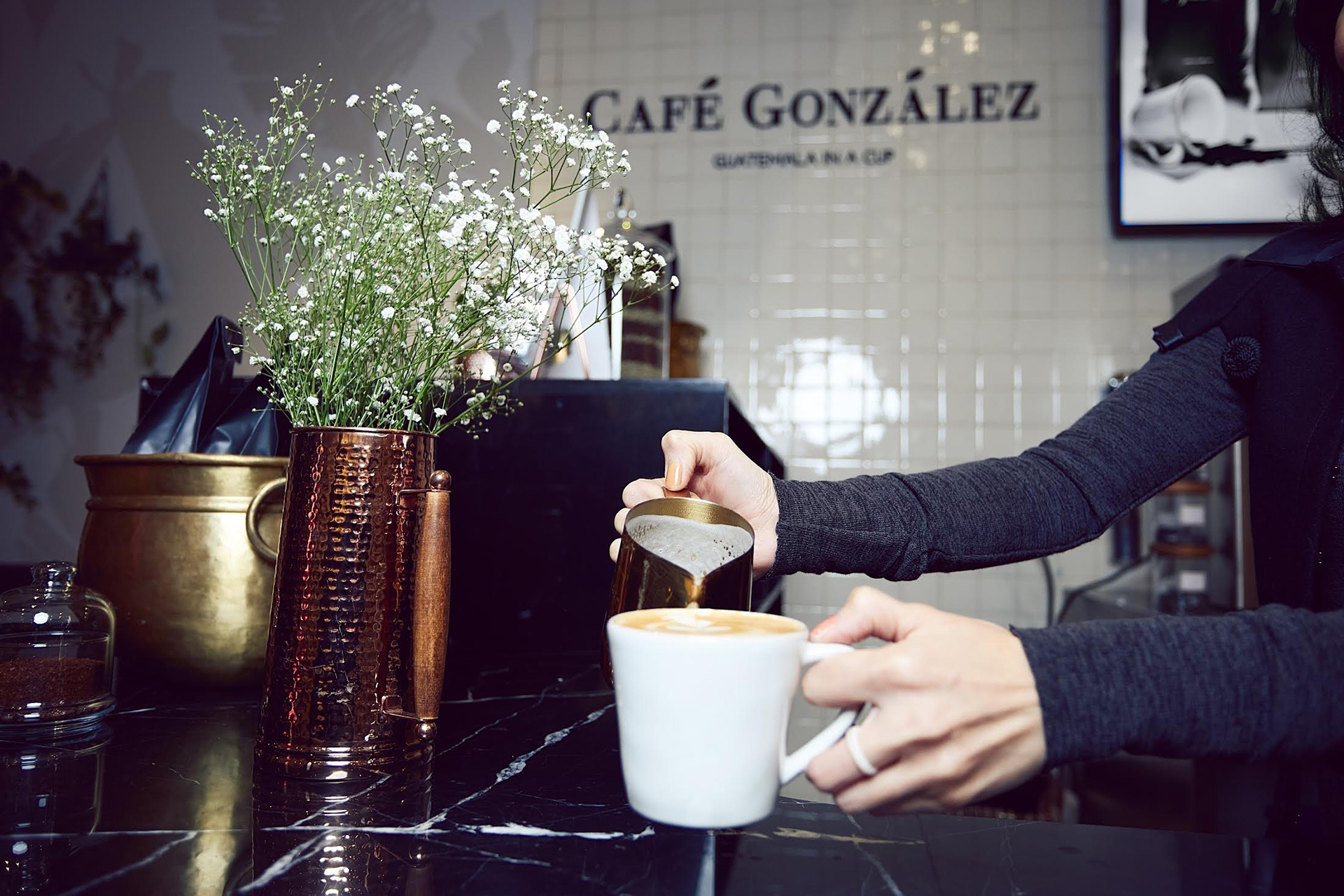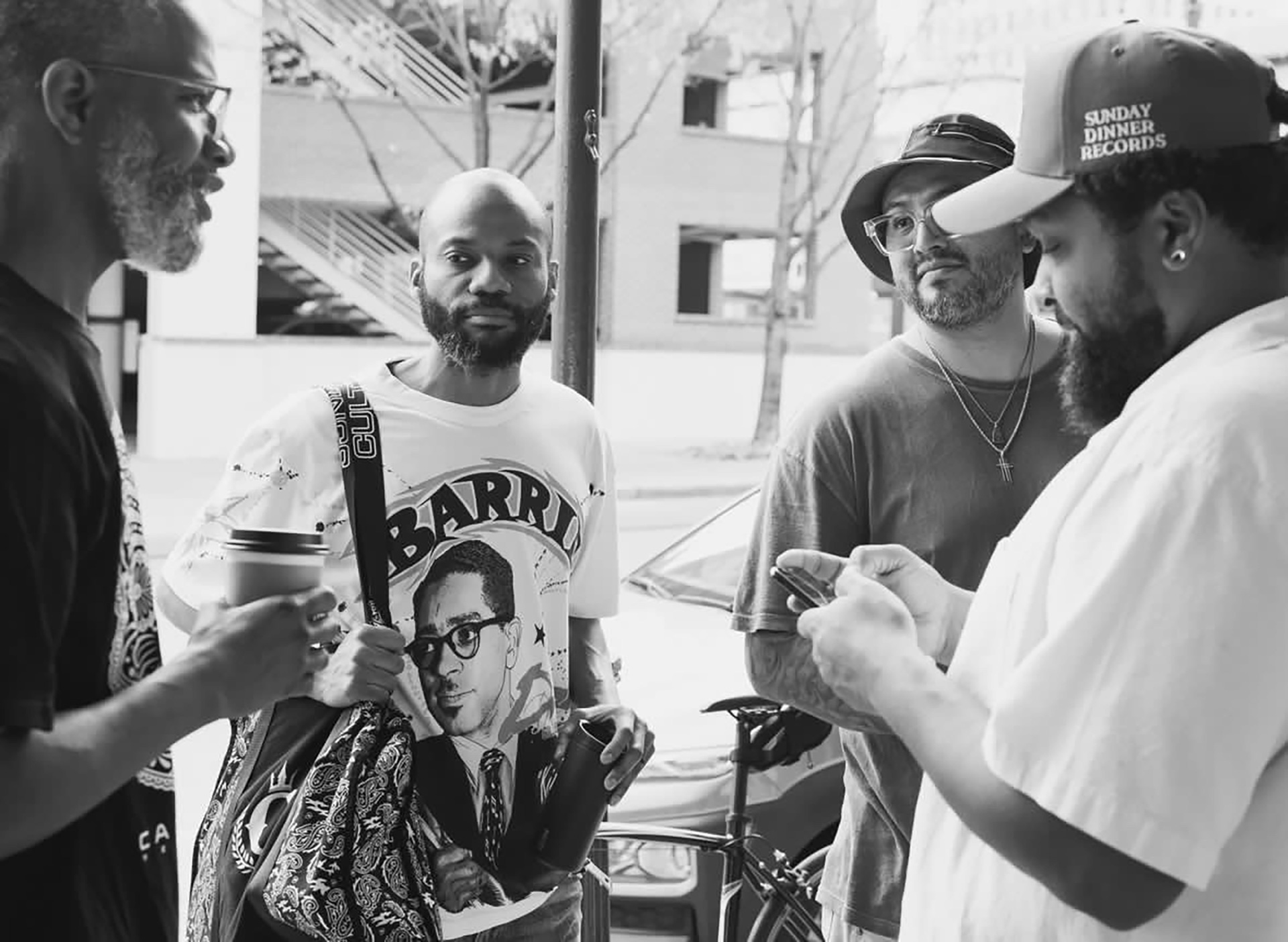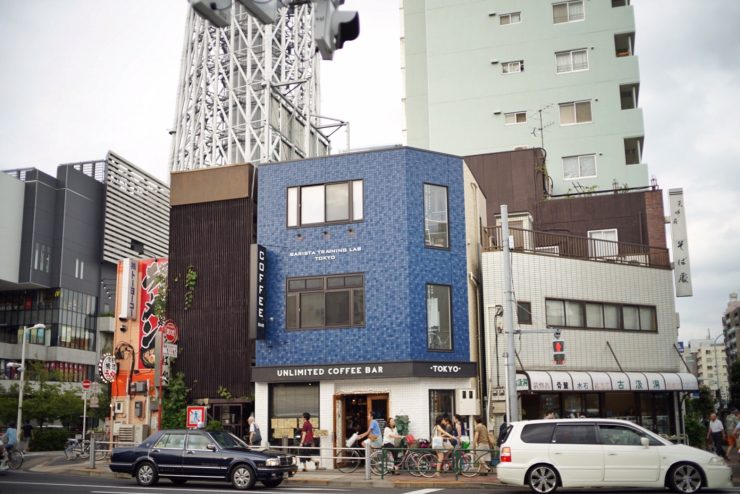 You’ll find Tokyo Skytree in Oshiage. The tallest tower in the world, it stands like a giant spear looking to pierce the sky—a monument to contemporary design built into the heart of an old, quiet neighborhood. Tourists and locals gather here to look out from the observation deck and admire the cityscape, which stretches out as far as the eye can see.
You’ll find Tokyo Skytree in Oshiage. The tallest tower in the world, it stands like a giant spear looking to pierce the sky—a monument to contemporary design built into the heart of an old, quiet neighborhood. Tourists and locals gather here to look out from the observation deck and admire the cityscape, which stretches out as far as the eye can see.
There’s coffee out there, hidden in the pockets between the buildings, lights, and ceaseless traffic. The question for most travelers is, where to find it?
If you happen to be visiting Skytree, it’s much closer than you’d think.
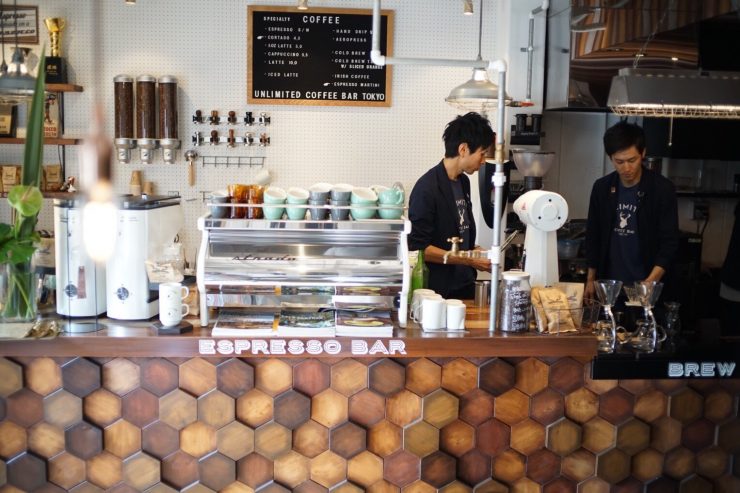 In among the local shops and old apartment buildings in the shadow of the tower sits Unlimited Coffee Bar, a cafe and barista training center from Unlimited Coffee Roasters.
In among the local shops and old apartment buildings in the shadow of the tower sits Unlimited Coffee Bar, a cafe and barista training center from Unlimited Coffee Roasters.
The first-floor cafe is a bustling space made up of four distinct stations: front counter, espresso bar, brew bar, and bar counter, with a barista for each. The cafe is a living, breathing example of owners Daichi Matsubara and Rena Hirai’s focus on barista training.

“Barista work is about passion, study, and customer service,” says Matsubara. “Think of it like this: the importers, the roasters, and the farmers don’t often interact with customers, but the barista does all the time. Sharing the links in the chain [of seed to cup] is the barista’s job; they’re an ambassador. So the job is not just making coffee, it’s customer service and sharing information.”
Matsubara and Hirai see their shop and their staff as ambassadors not just for quality coffee, but for the developing coffee culture here in Japan, too.
“Even though we could have chosen a spot closer to where we roast [in Arakawa], Oshiage is really nice,” says Hirai. “There are lots of tourists, and we think that makes for a great chance to share Japanese coffee culture. When people come to see Skytree, they can see the state of Japan’s coffee, too.”
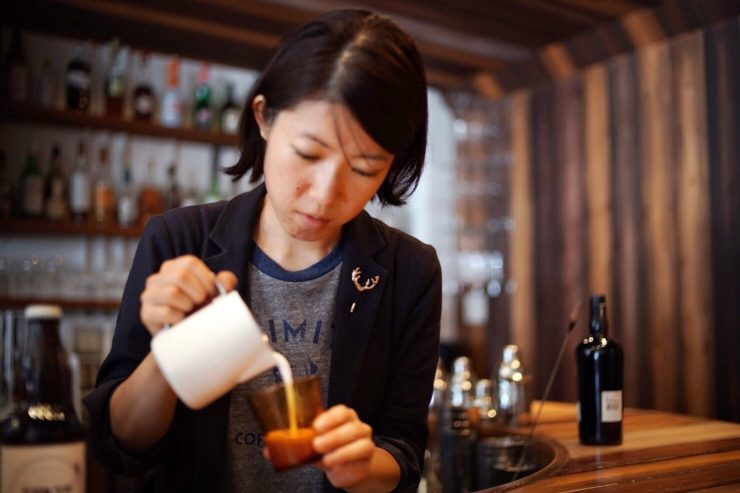 Improving the quality of coffee in Japan is a driving motivation for the couple, who roasted coffee and ran barista training out of their cramped Tokyo living space before expanding to their current location. They want to use their experience—Matsubara as a World Barista Championship judge since 2011, Hirai as a Japan Barista Championship judge for more than 10 years—to train baristas to be dedicated to service and lifelong learning.
Improving the quality of coffee in Japan is a driving motivation for the couple, who roasted coffee and ran barista training out of their cramped Tokyo living space before expanding to their current location. They want to use their experience—Matsubara as a World Barista Championship judge since 2011, Hirai as a Japan Barista Championship judge for more than 10 years—to train baristas to be dedicated to service and lifelong learning.
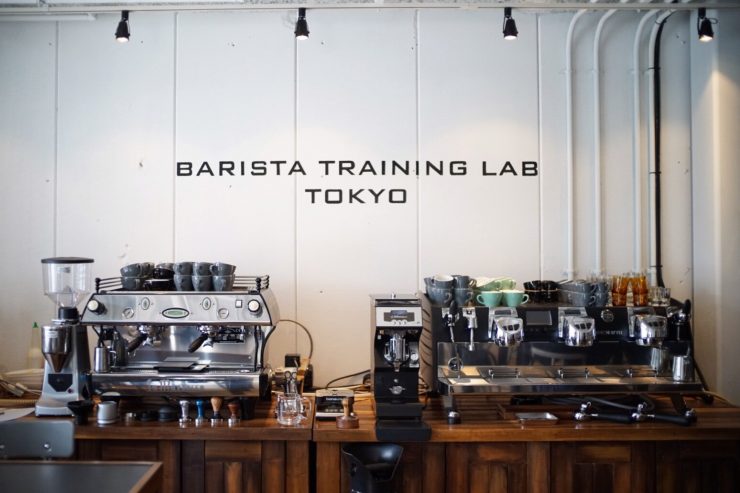 You can see this idea in the cafe space on the first floor, where each cup brewed is like a mini-presentation. Wherever possible, coffee at Unlimited is brewed where customers can watch it happen and easily interact with the baristas. The baristas also regularly compete in domestic competitions, with Kota Sato most recently taking first place in the 2016 Japan Hand Drip Championship.
You can see this idea in the cafe space on the first floor, where each cup brewed is like a mini-presentation. Wherever possible, coffee at Unlimited is brewed where customers can watch it happen and easily interact with the baristas. The baristas also regularly compete in domestic competitions, with Kota Sato most recently taking first place in the 2016 Japan Hand Drip Championship.
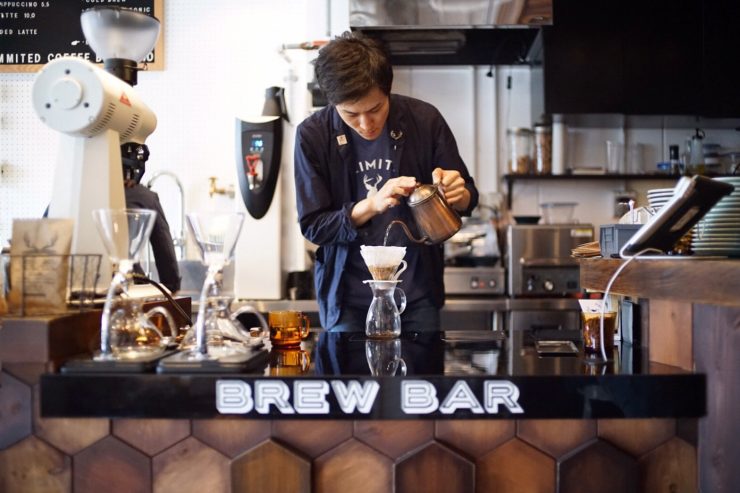 “We encourage all baristas to compete,” says Matsubara. “Studying, experimenting, presenting—these skills are invaluable when serving customers, too. When you feel the nerves of competition, it enhances your ability to brew for customers.”
“We encourage all baristas to compete,” says Matsubara. “Studying, experimenting, presenting—these skills are invaluable when serving customers, too. When you feel the nerves of competition, it enhances your ability to brew for customers.”
“Of course there’s the fame and popularity involved,” says Hirai, “but more important than that is developing an understanding for taste to share with customers.”
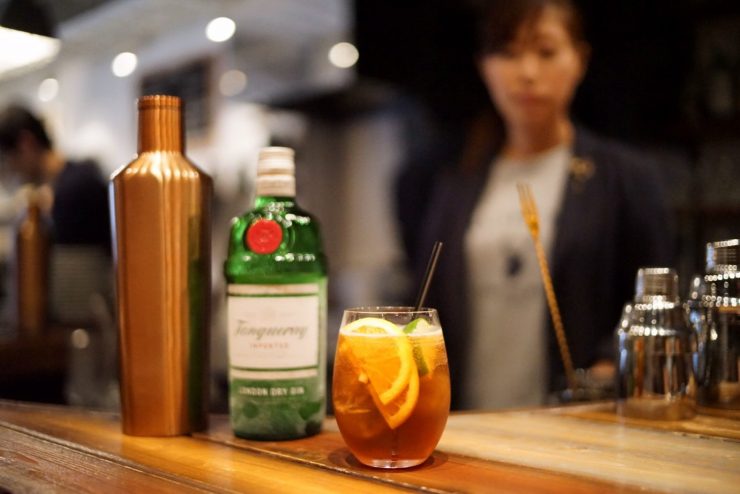
Unlimited has also gained some renown for its coffee cocktails. Though still a rarity in Tokyo, Hirai sees cocktails as a window for some into coffee discovery, and a chance for smaller coffee shops to expand their service, turning a daytime coffee shop into a nighttime cocktail bar. Also a certified Japan Coffee in Good Spirits judge, Hirai says the key to a coffee cocktail starts with the coffee. “First, make coffee the main element,” she says. “After you understand the flavor and the extraction method, you play with spirits, alcohol, and syrups that deepen that flavor.”
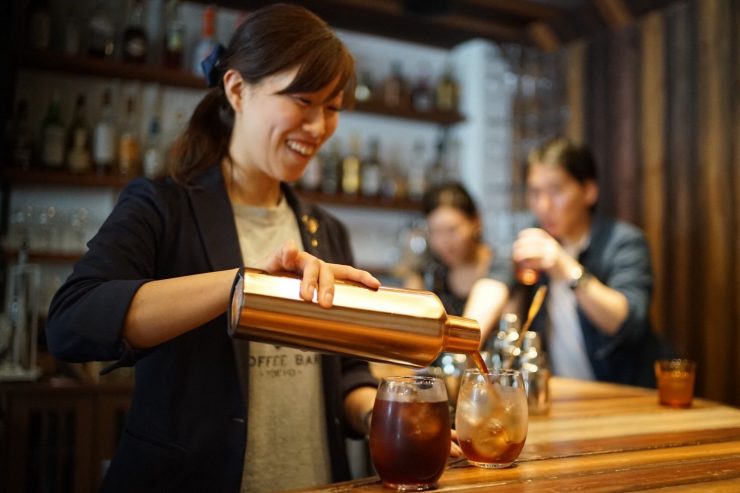 The coffee cocktails are perhaps the most fun to watch the crew prepare; the menu ranges from cold-brew gin & tonics and Irish coffee to espresso martinis and a selection of dessert cocktails.
The coffee cocktails are perhaps the most fun to watch the crew prepare; the menu ranges from cold-brew gin & tonics and Irish coffee to espresso martinis and a selection of dessert cocktails.
When you talk to Matsubara and Hirai, you realize that Unlimited Coffee Bar reaches into all areas of coffee development—roasting, training, brewing—to better understand and improve them at the customer’s first point of contact: the barista. The two see this point of contact as the chance to express something new and build bridges.
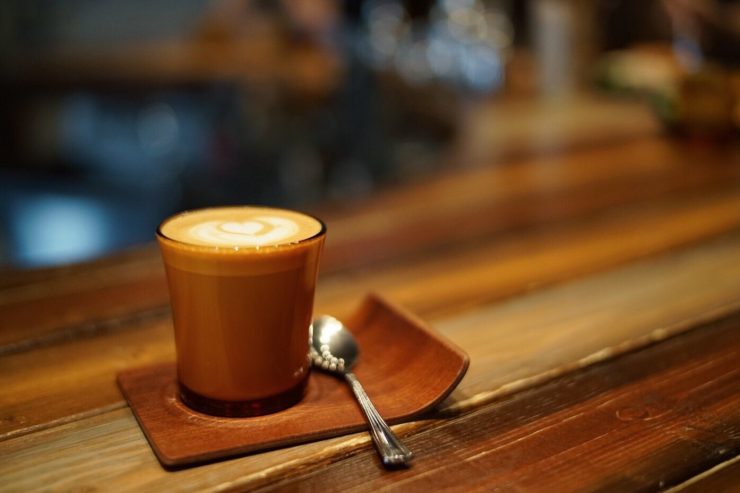 “I think of coffee as a tool for creating communities and connecting people,” says Matsubara. “If I’d never started [working in] coffee, there are so many people I never would have met. Coffee itself is really deep, but it’s the people around it, and the community, that I like most.”
“I think of coffee as a tool for creating communities and connecting people,” says Matsubara. “If I’d never started [working in] coffee, there are so many people I never would have met. Coffee itself is really deep, but it’s the people around it, and the community, that I like most.”
“When I share good coffee, it makes me happy,” adds Hirai. “And sharing those flavors is a beautiful thing. That moment when a trainee-barista gets it, and they discover the flavor they were looking for, that particular smile makes our job feel especially meaningful.”
Hengtee Lim (@Hent03) is a Sprudge.com staff writer based in Tokyo. Read more Hengtee Lim on Sprudge.
Photos courtesy of Sonia Cao.




